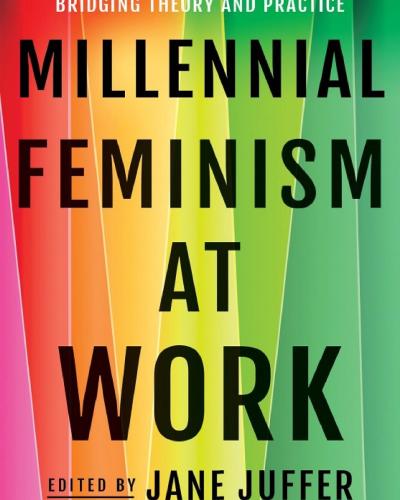Millenial Feminism at Work, edited by Jane Juffer, is an assemblage of feminist studies program graduates who share their academia and career related experiences. These millennial graduates, traversing fields from nonprofit to corporate, explain how they use their feminist, gender and sexuality degrees under the current economic, education, and social climate. Juffer, Department of Literatures in English, had a goal in mind when editing this book. It started in spring 2019 when Cornell’s Feminist, Gender, and Sexuality Department brought back seven recent graduates to talk about the triumphs and setbacks they’ve faced post-college with FGSS credentials. After this event, Juffer was compelled to start a book collection that not only focused on Cornell alumni but those from different institutions as well. “I was hoping to gain clarity and perhaps inspire others to do a better job of bridging the theory we teach in the classrooms and the conditions students face when they enter the job market,” Juffer states. Upon advertising on various social media platforms with large writer demographics, Juffer selected the most compelling abstracts, one of which was written by Jael Goldfine, Cornell Class of 2017 alumna. Goldfine double majored in Feminist, Gender, and Sexuality and American Studies. She cites different instances in which this combination of majors has helped her understanding of culture and feminism. Classes that focused on feminist ideologies of the Salem Witch Trials and feminist analysis of the American music scene provided her insight on gender dynamics, history, and culture in America. After graduating, Goldfine lost touch with feminism, which she mentions in her essay. Feeling trapped, Goldfine realigned herself to the same field of study that brought her despair. In doing so, her perspective on feminism and gender studies changed for the better. “It's sort of working through feminist theory, how it helped me work my way out of that [confusion] and recommit to feminist ideas,” she says. In addition to contributing her story, Goldfine respects the book’s exploratory genre and how it presents feminism’s evolution over the years and the impact it’s had on her generation. “I think there was sort of a unique challenge to being a millennial [feminist] of holding on to any sort of truly radical beliefs while feminism was actually being marked, sold and marketed to us all around, whether it's by like universities or companies,” she reflects. Goldfine says by bringing together different perspectives and stories, the book digs deep into the confluence of challenges that young feminists, like her, face.





